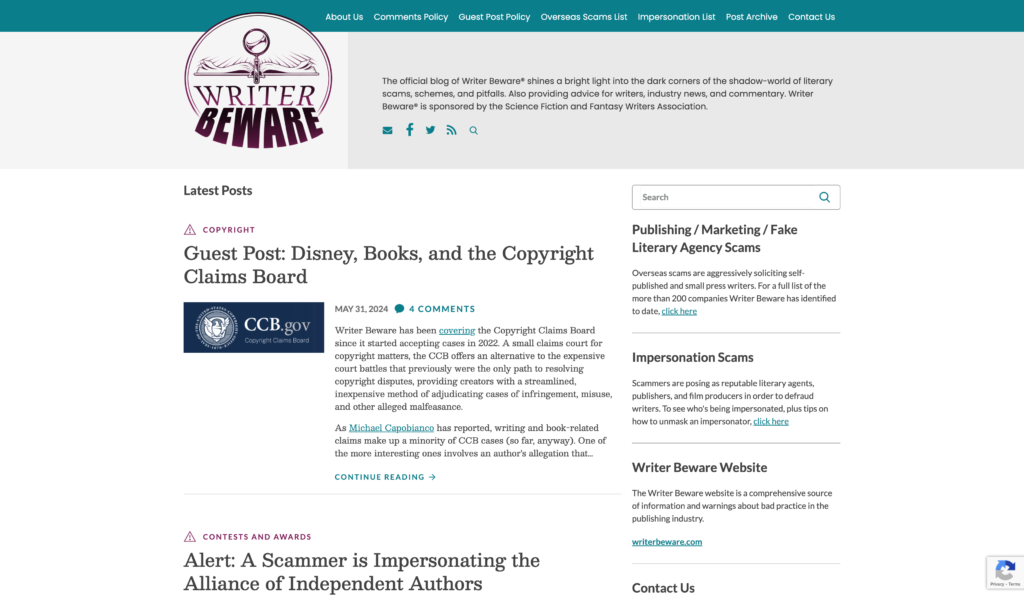
Should Writers Pay Submission Fees? Everything You Need to Know

So — you’ve done it! You’ve created a sparkling masterpiece of a novel, short story, or poem, and you’re ready to show it to the world. You know that your nuanced characterisation and breathtaking language is going to knock some editor’s socks right off of their feet.
The problem is, once you start looking around, you see that many of these publishers are asking for money just to consider your work. What gives?
Submission fees are a frustrating but very real part of the writer’s journey. Some do go towards a reasonable cause, but some are just a way for unscrupulous people to take advantage of others. Let’s dive into everything you need to know about paying to get your work seen.
Why do publishers charge submission fees?
Publishing can be an expensive endeavour, especially if you want to compensate your writers fairly. Literary journals in particular almost always operate at a loss, and their staff are mostly unpaid volunteers. While they may get some financial support from donations, advertisements, and government grants, they sometimes need to charge small submission fees in order to cover their overhead costs.
Some literary journals hold writing contests as a way to make some income and reward the most talented writers for their work. These can be expensive to enter, but there’s an opportunity for a substantial payoff. We’ll look more at the different publication avenues below.
How do you know if a submission fee is legitimate?
Unfortunately, when enough people want something badly enough, there will be predatory vipers ready to use them to their advantage. From vanity anthologies to so-called literary agents to Hollywood reps wanting to make a movie out of your book (which they inconveniently haven’t read yet), there’s no shortage of people willing to sell your dreams back to you.
Here’s an example: I recently came across a call for a forthcoming anthology from an indie press that was offering “40% off submissions”. Further investigation revealed that they were promoting, for a limited time, the opportunity to submit a short story for $30 rather than their usual $50. When questioned, the publisher explained that “This fee is more of a token to ensure that the author is serious about their commitment.”
Let’s look at some numbers.
A lot of writers want to get published. A lot of writers are submitting their work. A yearly anthology which I was fortunate enough to be part of in 2023 received just over 2,000 submissions. A new online niche journal that launched in 2024 received 800 submissions for their second issue. Unless a publication intentionally closes submissions early to manage their workload, it’s very unlikely that they’ll receive fewer than a few hundred submissions (though of course prestigious, established journals receive a lot more).

Let’s say this anthology receives, at a low-end estimate, 200 full-priced submissions. That brings in… wait for it… TEN THOUSAND DOLLARS. Who’s pocketing that money? Hint: it’s not the contributing writers. It’s the so-called publisher captaining the pirate ship through this sea of red flags.
When deciding whether to pay a submission fee, here are some key things to keep in mind.
How are they compensating writers?
Ideally, if a publication is charging writers to submit, some of that cash should be directed back at the writers who are accepted. If this is a contest, it might be a significant amount divided among a select few. If it’s a literary magazine, it might be a per-word rate or a flat rate for every story they accept. If it’s a traditional publishing house, they should offer an advance against royalties.
Some publications might instead offer a contributor’s copy of the magazine or anthology their writers are published in. Others might offer written feedback on your work. It’s up to you if you feel this is good value for your submission fee or not.
If they’re not offering any compensation at all, or if they’re offering “royalties” (which is a lottery that doesn’t promise anything at all), consider the next questions.
What is their sales pitch?
Look at the language the submissions call is using. Are they trying to “sell” you on their opening? If the publisher says “Seize the opportunity to be traditionally published!”, or “This is your chance to see yourself in print!”, run like the hounds of hell are at your heels.
Remember: you are not their customer. The reader is their customer. You are an artist who is giving them free labour under the guise of an “exciting opportunity” to feature your work.
What is their mission statement?
Have a look through their website and see what they say about their values. There are a lot of small press publishers and literary journals who are trying to use their platform to do some good in the world. They might donate a portion of their profits to charity, or they might be devoted to bringing more attention to traditionally underrepresented writers.
Try to get a sense of who these people are and what they’re working towards. Then, you can decide if you want to support them by paying a small submission fee. If nothing about them strikes you as particularly noteworthy or engaging, move on to the next opportunity.
Do you love their vibe?
Many online literary journals can’t afford to pay their contributors, but they do provide you with a link to a webpage with your creative work which you can then post on social media, share on your website, or send to your friends. If you love the overall mood and aesthetic of their publication, you may consider a small submission fee a fair price to have something that represents who you are as a writer.
What does WriterBeware have to say about it?
Make friends with the essential authors’ blog Writer Beware. This is an amazing resource that keeps tabs on many of the unscrupulous publishers, literary agents, and magazines who are trying to pull a fast one on authors. If you’re looking at an opportunity that doesn’t feel quite right, try searching for it on this website to see if it’s been flagged before. If nothing comes up, you can also reach out to the team at WriterBeware and ask them to look into it.

How much should writers pay to submit their work?
So if you’ve done your diligence and decided you’re comfortable paying for a particular submission call, what’s a reasonable amount to ask? Here are some guidelines to consider.
Contests
Writing contests are often a case of high risk, high reward. They charge higher submission fees than other publications in order to offer a bigger payout.
A good rule of thumb is that the submission fee should be no more than 1% (1/100th) of the prize money. That means if a contest is charging $30 to enter, the grand prize should be at least $3,000. If the top prize is $500, they shouldn’t be charging more than a $5 entry fee. While there’s some flexibility here, be very wary of contests that charge $25 to enter and award only $100 to the winner.
Anthologies, magazines, and literary journals
Literary journals often justify their fees by saying “Way back in the Ye Oldes—” (by which they mean the 20th century) “—writers used to have to pay for postage to send their stories out. So a submission fee is just like a stamp.”
Welllll… sort of. Many publications use Submittable to manage their incoming work, which costs them a fee of roughly $1.50 per submission. Some then pass this fee onto their writers by charging them two or three dollars to submit. They may also charge small fees to put towards paying their contributing writers.
In general, $3 to $5 is a reasonable submission fee for a small, independent publication. If they’re charging higher than this, they’re straying into contest territory and should be offering substantial compensation to reflect that.
Literary agents
This is an easy one: don’t pay submission fees to literary agents. Ever. Do not pass go. Do not collect $200. If a literary agent is asking you for money, something shady’s going on in Shadytown. Literary agents make money when you make money, and not before.
This is a partnership, not a service.
Traditional publishing houses
Likewise, traditional publishing houses shouldn’t be taking money off of their authors. Some independent presses might charge a small reading fee comparable to literary journals, but they shouldn’t be asking you to contribute to the overhead costs of publishing your book. If they are, they’re not a traditional publisher; they’re a vanity press.
There’s really only one way creative writing should be monetised, and it’s not by charging authors. It’s by selling to readers. If a publisher needs to make money off their authors, it’s probably a sign that they’re not selling enough books to make a profit. This means that they may not be the best choice for your career.
In summary
Remember: you’ve created something beautiful and powerful, and it’s worth waiting for it to find the right home. Don’t get caught thinking you need to shell out your hard-earned cash in extortionate submission fees to make your dreams a reality.




























